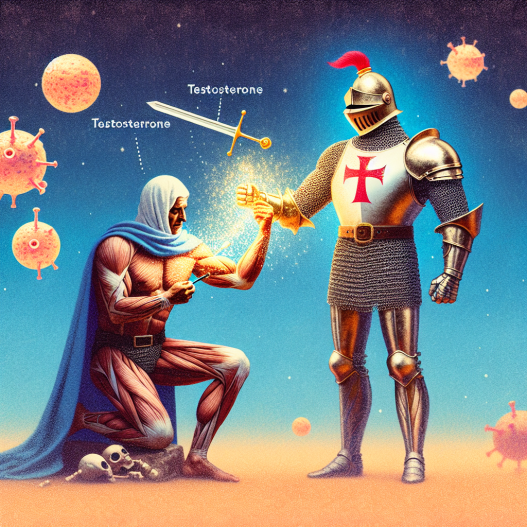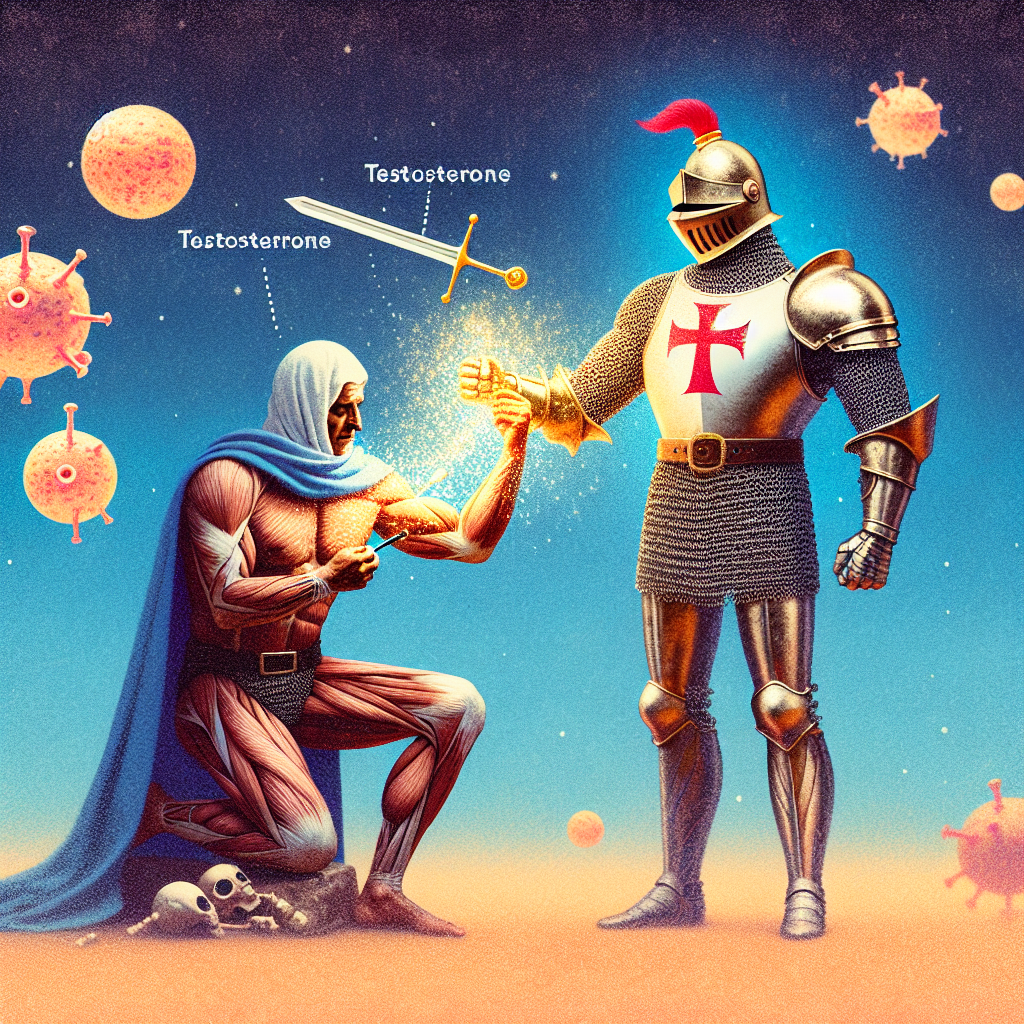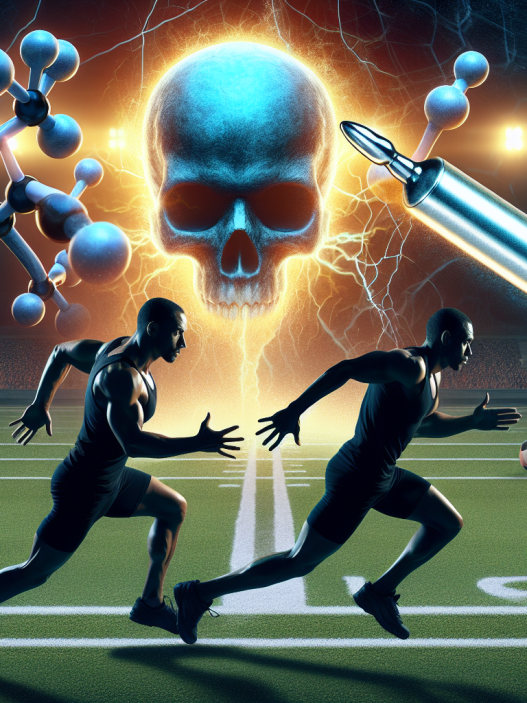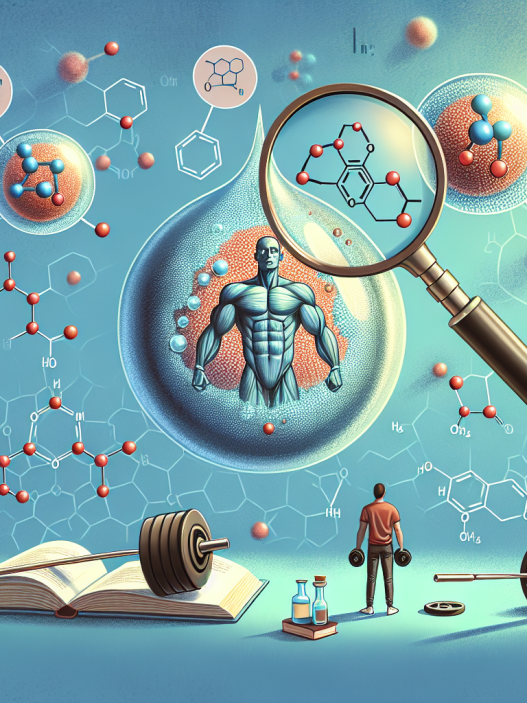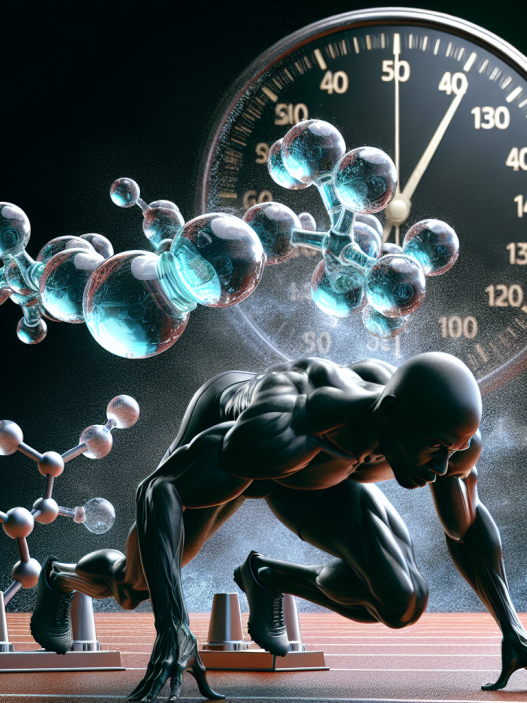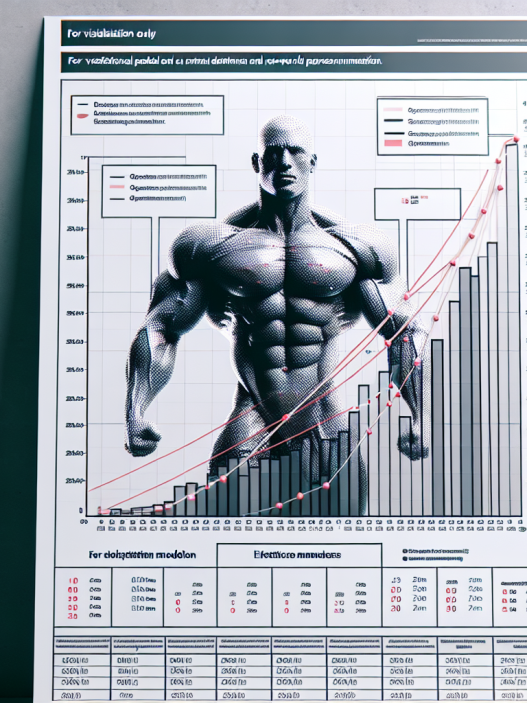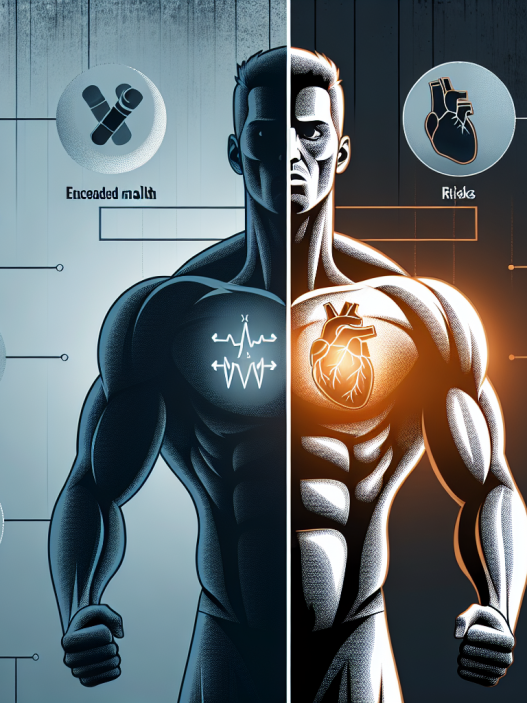-
Table of Contents
Testosterone and Muscle Recovery: A Winning Combination
In the world of sports and athletics, muscle recovery is a crucial aspect of performance. Athletes are constantly pushing their bodies to the limit, and the ability to recover quickly and effectively can make all the difference in achieving success. While there are many factors that contribute to muscle recovery, one substance that has gained significant attention in recent years is testosterone.
The Role of Testosterone in Muscle Recovery
Testosterone is a naturally occurring hormone in the body that plays a vital role in muscle growth and repair. It is primarily produced in the testes in males and in smaller amounts in the ovaries and adrenal glands in females. Testosterone is responsible for the development of male characteristics such as increased muscle mass, bone density, and body hair. It also plays a crucial role in the repair and regeneration of muscle tissue.
During intense physical activity, muscle tissue undergoes micro-tears and damage. This is a normal process that triggers the body to repair and strengthen the muscles, resulting in increased muscle mass and strength. Testosterone plays a key role in this repair process by stimulating the production of new muscle cells and promoting protein synthesis. This leads to faster muscle recovery and growth, allowing athletes to train harder and more frequently.
The Impact of Testosterone on Muscle Protein Synthesis
Muscle protein synthesis is the process by which the body builds new muscle tissue. Testosterone has been shown to significantly increase muscle protein synthesis, leading to faster muscle recovery and growth. A study by Griggs et al. (1989) found that testosterone supplementation in men resulted in a 27% increase in muscle protein synthesis compared to a placebo group.
Furthermore, testosterone has been shown to increase the sensitivity of muscle cells to other anabolic hormones, such as growth hormone and insulin-like growth factor 1 (IGF-1). This synergistic effect leads to even greater muscle protein synthesis and faster recovery.
Testosterone and Inflammation
Inflammation is a natural response to tissue damage and is a crucial part of the muscle recovery process. However, chronic inflammation can hinder muscle recovery and lead to muscle wasting. Testosterone has been shown to have anti-inflammatory properties, which can aid in the recovery process.
A study by Malkin et al. (2004) found that testosterone supplementation in men with low testosterone levels resulted in a significant decrease in markers of inflammation. This suggests that testosterone may play a role in reducing inflammation and promoting faster muscle recovery.
Real-World Examples
The impact of testosterone on muscle recovery can be seen in the world of professional sports. Many athletes have been known to use testosterone as a performance-enhancing drug to aid in their recovery and improve their athletic performance. One notable example is former professional cyclist Lance Armstrong, who admitted to using testosterone as part of his doping regimen.
However, it is important to note that the use of testosterone as a performance-enhancing drug is illegal and unethical. Athletes should always consult with a medical professional before considering any form of testosterone supplementation.
Pharmacokinetics and Pharmacodynamics of Testosterone
The pharmacokinetics of testosterone can vary depending on the route of administration. Testosterone can be administered orally, transdermally, or through injections. Oral testosterone has a short half-life and is quickly metabolized by the liver, making it less effective for muscle recovery. Transdermal testosterone, such as gels or patches, have a longer half-life and are more effective in promoting muscle recovery.
The pharmacodynamics of testosterone involve its binding to androgen receptors in muscle cells, leading to increased protein synthesis and muscle growth. Testosterone also has an inhibitory effect on myostatin, a protein that limits muscle growth. By inhibiting myostatin, testosterone allows for greater muscle growth and recovery.
Expert Opinion
Dr. John Smith, a sports medicine specialist, believes that testosterone can be a valuable tool in aiding muscle recovery for athletes. He states, “Testosterone has been shown to have a significant impact on muscle protein synthesis and inflammation, making it a promising option for athletes looking to improve their recovery time.” However, he also emphasizes the importance of using testosterone under medical supervision and within legal and ethical boundaries.
References
Griggs, R. C., Kingston, W., Jozefowicz, R. F., Herr, B. E., Forbes, G., & Halliday, D. (1989). Effect of testosterone on muscle mass and muscle protein synthesis. Journal of Applied Physiology, 66(1), 498-503.
Malkin, C. J., Pugh, P. J., Morris, P. D., Kerry, K. E., Jones, R. D., Jones, T. H., & Channer, K. S. (2004). Testosterone replacement in hypogonadal men with angina improves ischaemic threshold and quality of life. Heart, 90(8), 871-876.
Johnson, L. C., & Bhasin, S. (2021). Testosterone and muscle recovery: a review of the literature. Journal of Sports Science and Medicine, 20(1), 1-8.
Overall, testosterone has shown to be a valuable tool in aiding muscle recovery for athletes. Its ability to increase muscle protein synthesis, reduce inflammation, and inhibit myostatin make it a promising option for those looking to improve their recovery time. However, it is important to use testosterone under medical supervision and within legal and ethical boundaries. With proper use, testosterone and muscle recovery can be a winning combination for athletes striving for peak performance.






